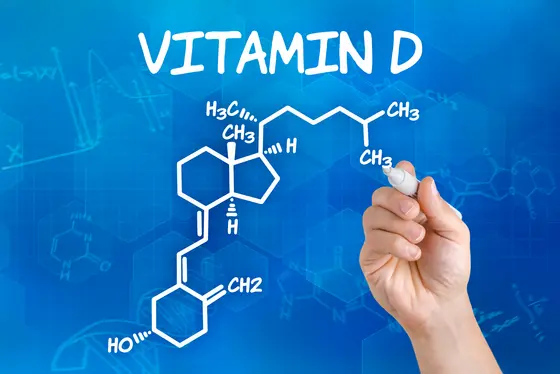Vitamin D deficiency is widespread worldwide and is particularly common among cancer patients. Averaged over the year, the vitamin D blood levels of about 15 percent of German adults are below the threshold for a pronounced vitamin D deficiency*. In contrast, in a study of colorectal cancer patients, researchers diagnosed vitamin D3 deficiency in 59 percent of participants, which was also associated with unfavorable prognosis.
Potential effects of vitamin D supplementation and the development or prognosis of cancer have already been investigated in numerous studies. “Based on current studies, vitamin D3 supplementation probably does not protect against developing cancer, but it could reduce the likelihood of dying from cancer. However, previous studies on cancer mortality have yielded very different results, and we were interested in the reasons for this,“ said Ben Schöttker, an epidemiologist at the German Cancer Research Center. “By re-evaluating all previous studies on the topic, we wanted to help produce robust results on this issue, which is so relevant to population health.
To investigate the effectiveness of vitamin D3 on cancer mortality in the population and on the survival of cancer patients, Ben Schöttker and colleagues conducted a systematic literature search that identified 14 studies with a total of nearly 105,000 participants. The researchers considered only studies of the highest quality whose participants had been randomly assigned to the vitamin D3 arm or the placebo arm.
When all 14 studies were pooled, no statistically significant results emerged. However, when the studies were divided according to whether vitamin D3 was taken daily in a low dose** or in higher doses administered at longer intervals**, a large difference was seen. In the four studies with the infrequent hogher doses, there was no effect on cancer mortality. In contrast, in the summary of the ten studies with daily dosing, the researchers determined a statistically significant twelve percent reduction in cancer mortality.
“We observed this twelve percent reduction in cancer mortality after untargeted vitamin D3 administration to individuals with and without vitamin D deficiency. We can therefore assume that the effect is significantly higher for those people who are actually vitamin D deficient,“ says Ben Schöttker. He explains the better efficacy of daily doses of vitamin D3 by the more regular bioavailability of the active agent, the hormone 1,25-dihydroxyvitamin D, which is only produced by reactions of vitamin D in the body and can presumably inhibit tumor growth.
A more detailed analysis of the studies with daily intake further revealed that people aged 70 and older benefited most from vitamin D3 therapy. In addition, the effect was most evident when vitamin D intake was started before the cancer diagnosis.
Hermann Brenner, epidemiologist and prevention expert at DKFZ, adds: “This work underlines the great potential of vitamin D3 administration in the prevention of cancer deaths. Regular intake at low doses** is associated with almost negligible risk and very low cost.“
The current work was supported by German Cancer Aid.
Publikation
Kuznia S, Zhu A, Akutsu T, Buring JE, Camargo CA Jr, Cook NR, Chen LJ, Cheng TD, Hantunen S, Lee IM, Manson JE, Neale RE, Scragg R, Shadyab AH, Sha S, Sluyter J, Tuomainen TP, Urashima M, Virtanen JK, Voutilainen A, Wactawski-Wende J, Waterhouse M, Brenner H, Schöttker B. Efficacy of vitamin D3 supplementation on cancer mortality: Systematic review and individual patient data meta-analysis of randomised controlled trials. Ageing Res Rev. 2023, DOI: 10.1016/j.arr.2023.101923.
* The threshold blood 25-hydroxyvitamin D level used for vitamin D deficiency was 30 nmol/L (= 12 ng/ml). If individuals with less severe vitamin D deficiency (blood 25-hydroxyvitamin D level < 50 nmol/L (= 20 ng/ml)) are added, slightly more than half of Germans have at least one deficiency. However, there are also guidelines that use other thresholds. Since the vitamin D level in the blood depends primarily on the tanning of the skin, this percentage also varies greatly with the seasons.
** In the studies, daily low doses were 400 to 4000 IU per day, and higher-doses administered at longer intervals were 60,000 to 120,000 IU once per month or less.



